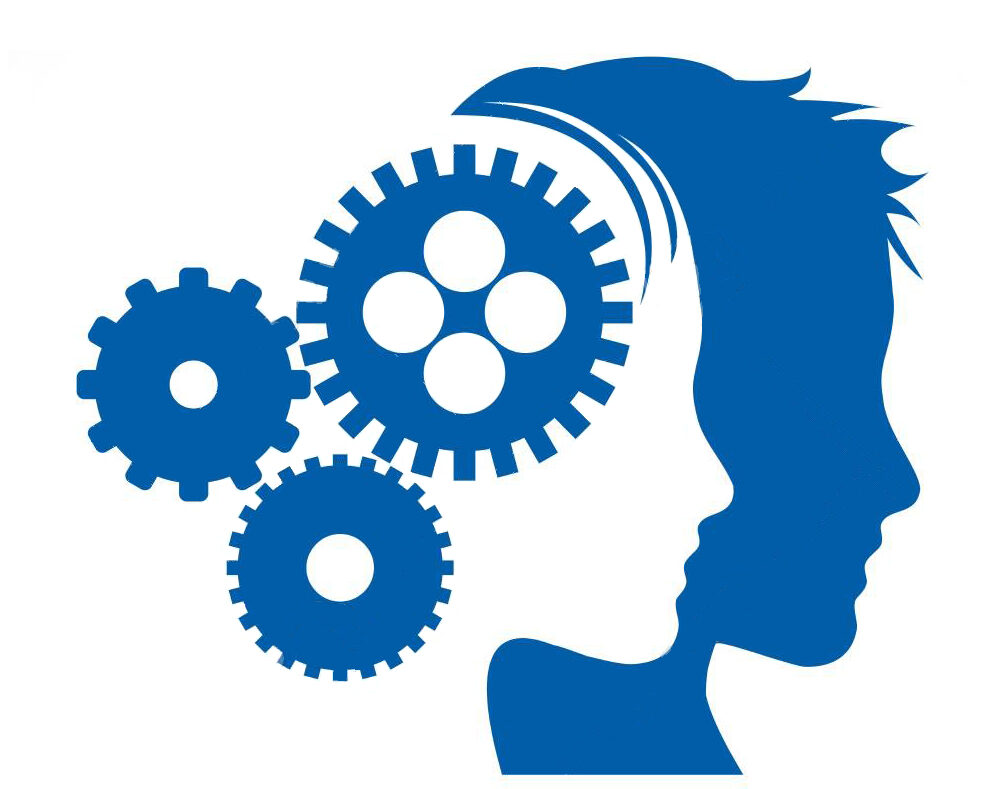Imagine having the ability to effortlessly solve complex problems and make informed decisions with ease. This is the power of analytical intelligence. By harnessing the analytical intelligence within you, you can navigate through life’s challenges and excel in various aspects of your personal and professional life. In this article, we will explore what analytical intelligence is, how it can be developed, and how it can benefit you in achieving your goals. Get ready to unlock your analytical potential and experience a new level of clarity and success.

Definition of Analytical Intelligence
What is analytical intelligence?
Analytical intelligence refers to the ability to analyze and interpret information, solve complex problems, and make logical decisions based on objective data and evidence. It involves the capacity to think critically, reason logically, and utilize analytical skills to gather, assess, and interpret data effectively.
Characteristics of analytical intelligence
Individuals with strong analytical intelligence often possess several key characteristics. They exhibit a high level of logical reasoning and are able to break down complex problems into smaller, more manageable parts. They have a keen eye for detail and are adept at identifying patterns and connections within data. Moreover, they are objective in their analysis and decision-making, relying on facts and evidence rather than emotions or biases.
The Importance of Analytical Intelligence
Problem-solving and decision-making
One of the primary reasons why analytical intelligence is important is its role in problem-solving and decision-making. Analytical individuals excel at assessing different options, weighing the pros and cons, and logically arriving at the most optimal solution. Their ability to analyze and evaluate various scenarios enables them to make informed decisions that are based on a thorough understanding of the situation at hand.
Critical thinking and reasoning
Analytical intelligence is closely tied to critical thinking and reasoning skills. The ability to think critically allows individuals to objectively evaluate information, identify logical fallacies, and make sound judgments. Analytical individuals can assess the validity and reliability of data, arguments, and theories, enabling them to approach problems and situations with a well-rounded and reasoned perspective.
Data analysis and interpretation
In an increasingly data-driven world, analytical intelligence plays a crucial role in effectively analyzing and interpreting data. Analytical individuals have the capacity to extract meaningful insights from large volumes of data, identify trends and patterns, and draw conclusions based on accurate analysis. This skill is particularly valuable in fields such as business, science, and technology.
Strategic planning and forecasting
Analytical intelligence is essential for strategic planning and forecasting. Individuals with strong analytical skills can assess market trends, identify opportunities and threats, and develop data-driven strategies to achieve organizational goals. They can anticipate future scenarios and make predictions based on thorough analysis, enabling businesses and organizations to stay ahead of the curve and make proactive decisions.
Developing Analytical Intelligence
Improving logical reasoning skills
To develop analytical intelligence, it is crucial to enhance logical reasoning skills. This can be achieved by engaging in activities such as puzzles, logic games, and brain teasers. These activities challenge the mind and enhance the ability to think logically, analyze information, and make deductions.
Enhancing problem-solving abilities
Problem-solving is a key component of analytical intelligence. By actively seeking out and solving various types of problems, individuals can improve their problem-solving abilities. This can be done through real-life scenarios, case studies, or even simulated exercises that present challenges and require analytical thinking to find effective solutions.
Gaining expertise in data analysis
Becoming proficient in data analysis is instrumental in developing analytical intelligence. Courses, workshops, and online resources that focus on statistical analysis, data visualization, and data interpretation can help individuals develop a strong foundation in this area. Additionally, engaging in hands-on projects that involve working with data sets can provide practical experience and further refine analytical skills.
Developing critical thinking skills
Critical thinking is a key aspect of analytical intelligence. Activities that promote critical thinking, such as analyzing arguments, evaluating evidence, and identifying assumptions, can help individuals develop their critical thinking skills. Engaging in debates, conducting research, and actively questioning information are effective ways to foster this skill.
Analytical Intelligence vs. Emotional Intelligence
Differences between analytical and emotional intelligence
Analytical intelligence and emotional intelligence are two distinct but complementary forms of intelligence. Analytical intelligence focuses on logical reasoning, problem-solving, and data analysis, while emotional intelligence refers to the ability to understand and manage emotions in oneself and others, as well as effectively navigate social situations.
The importance of a balance between the two
While analytical intelligence is vital for making logical decisions and solving complex problems, a balance between analytical intelligence and emotional intelligence is crucial. Emotions often influence decision-making and interpersonal interactions. Therefore, individuals who possess both types of intelligence can effectively consider the emotional impact of their decisions while still relying on factual information and logical thinking.
How they complement each other in decision-making
Analytical intelligence and emotional intelligence work together to inform decision-making. Analytical intelligence provides the logical framework for evaluating options and assessing the potential outcomes. Emotional intelligence, on the other hand, helps individuals consider the feelings and perspectives of others, as well as the emotional implications of different choices. This combination allows for more holistic and well-rounded decision-making.

Applications of Analytical Intelligence
Business and management
Analytical intelligence is highly applicable in the world of business and management. It enables professionals to analyze market trends, evaluate financial data, and make data-driven decisions. With strong analytical skills, individuals can identify opportunities, assess risks, and develop strategies that drive business success.
Science and research
Analytical intelligence is fundamental in scientific research. Scientists rely on analytical skills to design experiments, analyze data, and draw conclusions from their findings. This form of intelligence enables researchers to identify patterns, make connections, and contribute to the advancement of scientific knowledge.
Technology and innovation
In the rapidly evolving field of technology, analytical intelligence plays a key role. It helps individuals develop innovative solutions, analyze complex systems, and identify potential areas for improvement. Analytical thinkers are at the forefront of technological advancements, driving innovation and pushing the boundaries of what is possible.
Finance and economics
Analytical intelligence is essential in the fields of finance and economics. Analytical thinkers can analyze financial data, identify trends, and make informed predictions. This intelligence allows individuals to assess the feasibility of investment opportunities, manage risks, and develop sound financial strategies.
Healthcare and medicine
Analytical intelligence is indispensable in healthcare and medicine. Medical professionals rely on analytical skills to make accurate diagnoses, analyze patient data, and develop treatment plans. Analytical thinkers can interpret complex medical information, consider various factors, and make informed decisions that impact patient outcomes.
Careers that Require Analytical Intelligence
Data analyst
Data analysts utilize analytical intelligence to extract insights from data, identify patterns, and communicate findings effectively. They work with large datasets, conduct statistical analyses, and provide organizations with valuable information for decision-making.
Financial analyst
Financial analysts rely on analytical intelligence to evaluate financial data, assess investment opportunities, and make recommendations. They analyze market trends, project financial outcomes, and assist organizations in making informed financial decisions.
Research scientist
Research scientists utilize analytical intelligence to design experiments, collect and analyze data, and draw conclusions. They utilize analytical skills to contribute to scientific knowledge and advancements in their respective fields.
Management consultant
Management consultants apply analytical intelligence to assess business processes, evaluate organizational strategies, and provide recommendations for improvement. They utilize analytical skills to analyze data, identify areas for optimization, and support organizational decision-making.
Market research analyst
Market research analysts utilize analytical intelligence to gather and analyze market data, identify consumer trends, and inform marketing strategies. They utilize analytical skills to evaluate market conditions, conduct surveys, and provide organizations with insights that drive business growth.

Challenges in Developing Analytical Intelligence
Overcoming biases and assumptions
Developing analytical intelligence requires overcoming biases and assumptions that may cloud judgment. Individuals must strive for objectivity, critically evaluate their own thought processes, and challenge preconceived notions that could hinder effective analysis and decision-making.
Dealing with complex and ambiguous problems
Analytical intelligence is tested when confronted with complex and ambiguous problems. The ability to break down complex problems, analyze various factors, and arrive at well-reasoned solutions can be challenging. Developing analytical intelligence involves practicing problem-solving techniques and expanding one’s analytical toolkit.
Adapting to changing environments
In an ever-changing world, analytical intelligence must be adaptable. Individuals need to be able to apply analytical skills to new and unfamiliar situations, adjust their thinking to accommodate changing circumstances, and find creative solutions when faced with unexpected challenges.
Managing information overload
With an abundance of information at our fingertips, managing information overload is a challenge. Developing analytical intelligence involves honing the skill of distinguishing between relevant and irrelevant information, filtering out noise, and focusing on essential data to make informed decisions.
Famous Personalities known for Analytical Intelligence
Albert Einstein
Albert Einstein, known for his groundbreaking theories in physics, exhibited exceptional analytical intelligence. His ability to analyze complex scientific problems and develop revolutionary theories transformed our understanding of the universe.
Marie Curie
Marie Curie, a renowned physicist and chemist, demonstrated remarkable analytical intelligence. Her groundbreaking research on radioactivity required meticulous data analysis and interpretation, leading to significant scientific advancements.
Isaac Newton
Isaac Newton, one of history’s greatest scientists, possessed exceptional analytical intelligence. His laws of motion and universal gravitation revolutionized the field of physics, showcasing his extraordinary ability to analyze and reason.
Ada Lovelace
Ada Lovelace, widely regarded as the world’s first computer programmer, showcased analytical intelligence through her work on Charles Babbage’s Analytical Engine. Her analytical skills and logical reasoning laid the foundation for modern computing.
Alan Turing
Alan Turing, a renowned mathematician and computer scientist, demonstrated exceptional analytical intelligence. He played a pivotal role in cracking the Enigma code during World War II, showcasing his ability to analyze complex encryption systems.

Measuring Analytical Intelligence
Traditional intelligence tests
Traditional intelligence tests, such as IQ tests, are frequently used to assess analytical intelligence. These tests evaluate problem-solving skills, logical reasoning, and the ability to interpret patterns and relationships.
Critical thinking assessments
Critical thinking assessments measure an individual’s ability to analyze information, evaluate arguments, and draw well-reasoned conclusions. These assessments require individuals to think critically, apply logical reasoning, and demonstrate effective decision-making skills.
Problem-solving assessments
Problem-solving assessments evaluate an individual’s ability to identify, analyze, and solve problems. These assessments focus on assessing analytical skills, logical reasoning, and the capacity to approach problems systematically.
Data analysis challenges
Data analysis challenges involve analyzing and interpreting data to draw conclusions and make informed decisions. These challenges may encompass statistical analysis, data visualization, and the ability to extract meaningful insights from complex datasets.
Improving Analytical Intelligence in Children
Educational approaches
Educational approaches that foster analytical intelligence in children include incorporating critical thinking into the curriculum, teaching problem-solving strategies, and promoting data analysis skills. Encouraging hands-on learning experiences and providing opportunities for exploration can also enhance analytical thinking.
Critical thinking activities
Engaging children in critical thinking activities, such as puzzles, riddles, and mind games, can develop their analytical intelligence. These activities encourage logical reasoning, problem-solving, and the ability to think critically about various scenarios.
Problem-solving exercises
Integrating problem-solving exercises into children’s education can help improve their analytical intelligence. Real-world problem-solving scenarios, case studies, and collaborative group projects can develop their ability to analyze complex problems and find effective solutions.
Encouraging curiosity and exploration
Nurturing a child’s curiosity and encouraging exploration enhances their analytical intelligence. Providing opportunities for hands-on experiments, encouraging them to ask questions, and fostering a love of learning can stimulate their analytical thinking and problem-solving skills.
In conclusion, analytical intelligence plays a pivotal role in problem-solving, critical thinking, data analysis, and decision-making across various fields. Developing analytical intelligence involves enhancing logical reasoning, problem-solving abilities, data analysis skills, and critical thinking. The balance between analytical intelligence and emotional intelligence is essential for well-rounded decision-making. Applications of analytical intelligence span diverse industries such as business, science, technology, finance, and healthcare. Numerous careers, including data analysts, financial analysts, and research scientists, require strong analytical intelligence. Developing analytical intelligence faces challenges such as biases, complex problems, adapting to changing environments, and information overload. Remarkable individuals like Albert Einstein, Marie Curie, Isaac Newton, Ada Lovelace, and Alan Turing are known for their exemplary analytical intelligence. Analytical intelligence can be measured through traditional intelligence tests, critical thinking assessments, problem-solving assessments, and data analysis challenges. Encouraging analytical intelligence in children involves educational approaches, critical thinking activities, problem-solving exercises, and fostering curiosity and exploration. By recognizing the importance and understanding the development of analytical intelligence, individuals can make informed decisions and solve complex problems effectively.


